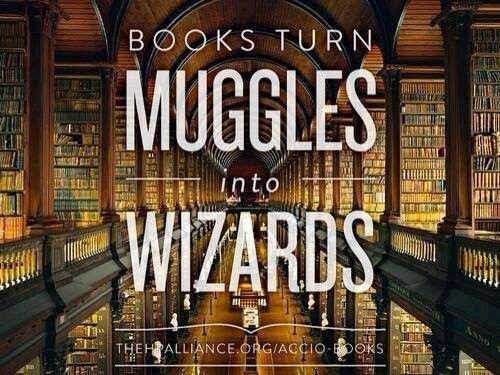The value of reading has always been important in my
family. My involvement in Speech
& Debate, Theatre, and Alpha, Delta, Rho Literary Society, also found
general favor as appropriate extra curricular activities.
 The Ah, Ha Moment: My senior year of high school brought with it a
requisite unit on Shakespeare. We
had an amazing teacher (Mrs. L) who made the language come alive and inspired
us to dive in head first assuring us that the water was in fact plenty
deep. That semester changed my
life. For one man to write such
timeless characters and stories that reach into the heart of what it means to
be human and strike a universal chord, amazed me. Then Mrs. L introduced us to the concept of Shakespearian
Archetypes. The lesson on
archetypes came home during a research session for debate when I cam across an
article about non-biologically related look-a-likes. (Here’s a more recentarticle on the same topic.) It just made sense. My friends Nate and Z, were not related yet shared spookily
similar physical features, facial expressions, and movement patterns. And my first major realization of the
crossover from literature to real life took root.
The Ah, Ha Moment: My senior year of high school brought with it a
requisite unit on Shakespeare. We
had an amazing teacher (Mrs. L) who made the language come alive and inspired
us to dive in head first assuring us that the water was in fact plenty
deep. That semester changed my
life. For one man to write such
timeless characters and stories that reach into the heart of what it means to
be human and strike a universal chord, amazed me. Then Mrs. L introduced us to the concept of Shakespearian
Archetypes. The lesson on
archetypes came home during a research session for debate when I cam across an
article about non-biologically related look-a-likes. (Here’s a more recentarticle on the same topic.) It just made sense. My friends Nate and Z, were not related yet shared spookily
similar physical features, facial expressions, and movement patterns. And my first major realization of the
crossover from literature to real life took root.
A few years later, when I announced that my college majors
were going to be Communication (focus in Rhetoric) and English Literature, but
I wasn’t planning to go to law school, the nervous looks started coming
out.
“What do you plan to do,” nervous friends and family
asked. My answers varied, but I
had faith in the skills I was developing.
It wasn’t until much later, however, that I realized the real value of
my love affair with the liberal arts.
The entire sum of my undergraduate experience can be summed up into
three simple elements that have made all the difference: I learned to think,
research, and create.
You can reframe these skills into much more resume
appropriate, human resources approved, buzz-word savvy terms but they are the
foundation of my intellectual growth and professional development.
In the liberal arts we are taught to consume and analyze
words, images, ideas, processes, history.
The best teachers push students beyond to learn about the systems and
climates that inspired such creations, then a step further to really understand
the impact those cultural artifacts had on the world ever after. All things come back to the human
experience, and what better way to understand that experience than to study
literature, art, history, sociology, political science, religion and
philosophy. Everything else stems
from and returns to this foundation.
Please understand that I’m not downplaying specialized
educational tracts. We need to
have highly trained nurses, engineers, accountants, mathematicians, and even
lawyers. But let’s also
acknowledge the roles of the liberal arts majors who dissect social norms and
organizational systems only to rebuild them stronger and more efficient than
ever before. It’s time to
acknowledge the value in teachers who change plans time and time again because
not all kids learn the same way or on the same schedule (even if that’s how the
state wants it). Let the student
who majored in Philosophy and Computer Science be proud that he brings a
heightened ethical framework to the projects he develops from code to front end
interface.
To all my fellow Liberal Arts Majors, to anyone
contemplating a course of liberal arts study, and especially to the parents and
friends of those young people: THERE IS GREAT VALUE to studying liberal
arts. Are there jobs out there explicitly
advertising “Wanted: Liberal Arts Graduates,” probably not many. Are there jobs that need liberal arts
majors to do them well, you bet.
You see we are used to having to reframe and interpret material in
innovative and exciting ways – even ourselves.
Special Thanks to my
parents for their love and support of my crazy academic wanderings
and to a few of my
teachers (sorry for everyone I missed)
Bonnie
Janet Smith
Betty Buchanan
Anna Leichty
Traci Andis
Jeremy Bernstein
Monty Pedon
Bob Pickell
Br. Rob Reuter, C.PP.S.
Charley Kerlin
Charley Kerlin
John Rahe
Heidi Rahe
Zachary White
Maia Hawthorne
Bill Mottolesse
Fred Berger
Fr. Tim McFarland, C.PP.S.
Rob Pfaff
Sally Berger
John Nichols
Peter Watkins
Jody Watkins
Bill White
Mark Steiner
Fr. Ed McCarty, C.PP.S.
Fr. Dr. Bill Stang, C.PP.S.
Fr. Dr. Bill Stang, C.PP.S.


